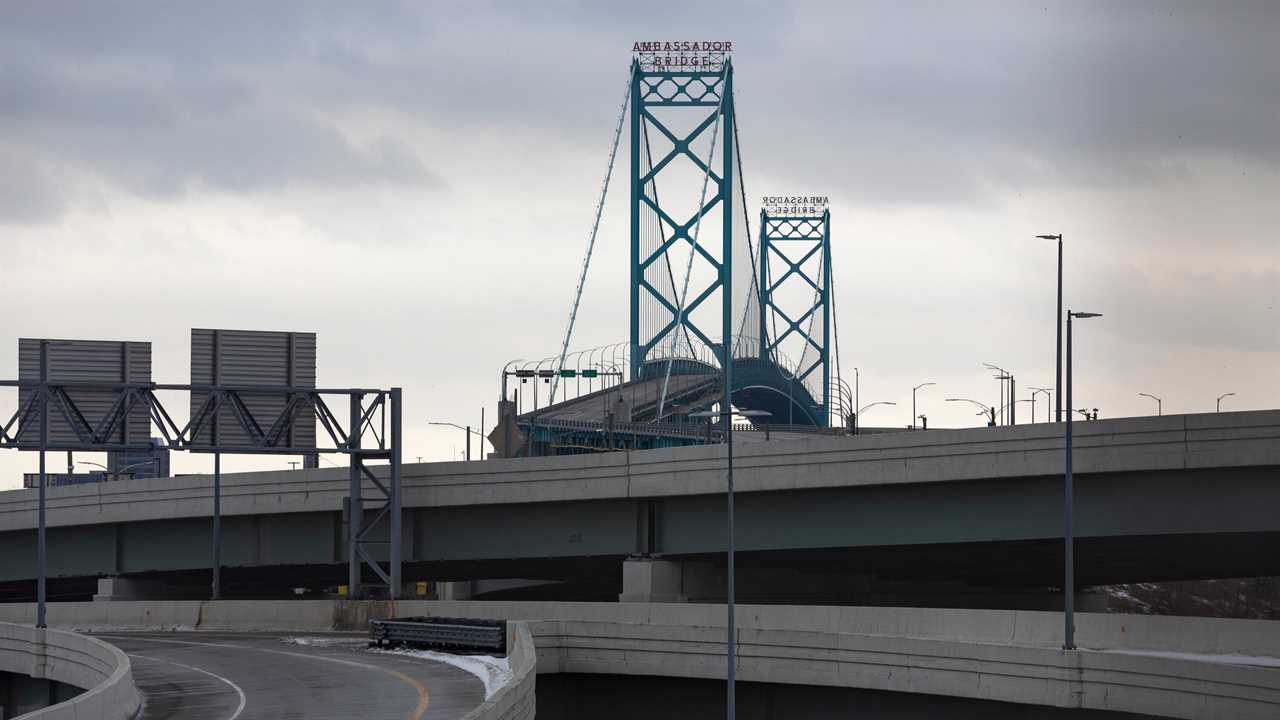
After two years of the pandemic, semiconductor shortages and supply chain chaos, it seemed as if nothing else could go wrong for the auto industry and the millions of people it employs. But then came thousands of truckers who, angry about vaccine mandates, have been blocking major border crossings between Canada and the United States.With Canadian officials baffled about what to do, the main routes that handle the steel, aluminum and other parts that keep car factories running on both sides of the border were essentially shut down Wednesday and Thursday.Ford Motor, General Motors, Honda and Toyota have curtailed production at several factories in Michigan and Ontario, threatening paychecks and offering a fresh reminder of the fragility of global supply chains and of the deep interdependence of the U.S. and Canadian economies, which exchange $140 million in vehicles and parts every day.No one knows how this is going to end. The protests are expected to swell in the coming days and could spread, including to the United States. Canada’s transport minister has called the bridge blockades illegal. Marco Mendicino, Canada’s minister of public safety, said on Thursday that the Royal Canadian Mounted Police, the national force, was sending additional officers to the Canadian capital, Ottawa, and to Windsor, Ontario. The mayor of Windsor has threatened to remove the protesters. But those statements have seemed to have little impact. Gov. Gretchen Whitmer of Michigan pleaded with Canadian officials to quickly reopen traffic.“They must take all necessary and appropriate steps to immediately and safely reopen traffic so we can continue growing our economy,” Ms. Whitmer said in a statement on Thursday.The chaos is already starting to take an economic toll. The pain is likely to be most acute for smaller auto parts suppliers, for independent truckers and for workers who get paid based on their production. Many of these groups, unlike large automakers like G.M., Ford and Toyota, lack the clout to raise prices of their goods and services. Companies and workers in Canada are more likely to suffer because they are more dependent on the United States.The longer crossings between the countries remain blocked, the more severe the damage, not only to the auto industry but also to the communities that depend on manufacturing salaries. Workers at smaller firms typically receive no compensation for lost hours, said Dino Chiodo, the director of auto at the giant Canadian union Unifor. Workers who have been sent home early because of parts shortages will spend less at stores and restaurants.“People say, ‘I have $200 less this week, what do I do?’” Mr. Chiodo said. “It affects the Canadian and U.S. economy as a whole.”Auto factories and suppliers in the United States generally keep at least two weeks of raw materials on hand, said Carla Bailo, the president of the Center for Automotive Research in Ann Arbor, Mich. If the bridges remain blocked for longer than that, she said, “then you’re looking at layoffs.”The blockades came after a demonstration in Ottawa that started nearly two weeks ago. The protests began over a mandate that truck drivers coming from the United States be vaccinated against the coronavirus and have grown to include various pandemic restrictions. Some have demanded that Prime Minister Justin Trudeau resign. The truckers have been joined by various groups, including some displaying Nazi symbols and damaging public monuments. Police in Ottawa said on Thursday that the protesters and their supporters, including some in the United States, had almost overwhelmed the city’s 911 system with calls.The crossing that has the auto industry and government officials most concerned is the Ambassador Bridge, which connects Windsor and Detroit. It carries roughly a quarter of the trade between the two countries, which has been relatively unrestricted for decades. While food and other products are also affected, about a third of the cargo that uses the bridge is related to the auto industry, Ms. Bailo said.The blockade has been felt as far south as Kentucky, where production has been disrupted at a Toyota factory, the company said on Thursday. The shutdown at the border also will prevent manufacturing at Toyota’s three Canadian plants for the rest of the week, a spokesman for the automaker, Scott Vazin, said.ImageDemonstrators blocking access to the Ambassador Bridge in Windsor. The bridge accounts for roughly a quarter of the trade between the United States and Canada.Credit...Nathan Denette/The Canadian Press, via Associated PressG.M. said it had canceled two shifts on Wednesday and Thursday at a factory in Lansing, Mich., that makes Buick Enclave and Chevrolet Traverse sport utility vehicles. The company also sent workers from the firstBy: Jack Ewing and Ana Swanson
Title: Canadian Trucker Protests Snarl an Already Hobbled Auto Industry
Sourced From: www.nytimes.com/2022/02/10/business/economy/canada-protests-cars-automobiles.html
Published Date: Thu, 10 Feb 2022 23:21:16 +0000
Read More
Did you miss our previous article...
https://badpoliticians.com/us-politics/mayor-adams-defends-his-crime-plan-against-albany-democrats
 UK PoliticsWorld PoliticsVideosPrivacy PolicyTerms And Conditions
UK PoliticsWorld PoliticsVideosPrivacy PolicyTerms And Conditions
